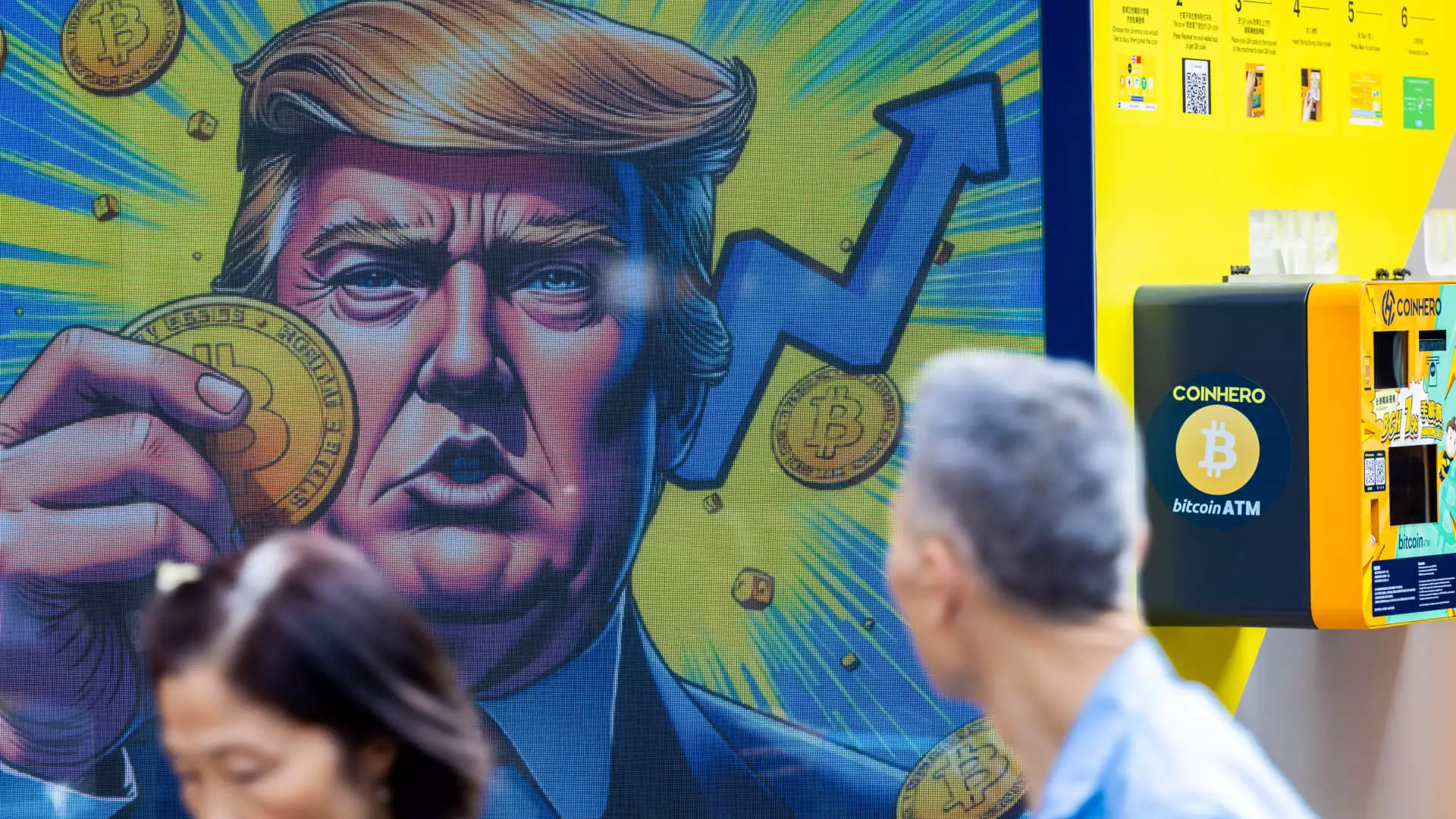In a stunning display of political and financial maneuvering, President Donald Trump and his associates are tapping into the booming cryptocurrency market by amassing substantial revenues through the newly launched $TRUMP token. Reports indicate that they have pocketed nearly $900,000 in trading fees in just two days following an enticing announcement aimed at the top 220 holders of the token. This scheme, which promises an exclusive dinner with the president to token holders, raises serious ethical questions about the intertwining of politics and profit.
The allure of a private dinner in Washington D.C.’s upscale venues, featuring a personalized appearance by Trump, taps into the almost voyeuristic fascination that many hold for proximity to power. Featuring a leaderboard of top token holders on its website, the $TRUMP coin not only incentivizes investment but also gamifies the act of purchasing political access. As the cryptocurrency surged over 50% in value on the back of this announcement, climbing to a market cap of $2.7 billion, many are left questioning the implications of such a bold move by a sitting president.
Corruption or Innovation? The Political Fallout
While Trump’s allies may herald this latest venture as a progressive step into a modern financial landscape, critics are scrutinizing the ethics behind such initiatives. Senator Chris Murphy labeled the dinner promotion as “the most brazenly corrupt thing a President has ever done,” articulating a sentiment shared by many who believe that such actions represent an exploitation of presidential influence.
The ethical implications are alarming. With approximately 80% of the $TRUMP token supply controlled by Trump and associated entities, the potential for self-enrichment is evident. Chainalysis data indicates that the trading activity surrounding the token has already generated over $324.5 million in fees for insiders since its January launch, cleanly sidestepping many traditional regulatory frameworks that would typically govern such financial activities. Critics, including Democratic Senators Adam Schiff and Elizabeth Warren, have called for investigative scrutiny into these practices, questioning whether they represent “pay to play” corruption on an unprecedented scale.
A Tangled Web of Interests: Financial Transparency in Politics
Delaney Marsco, from the Campaign Legal Center, highlights a critical void in legal accountability, noting, “Criminal conflicts of interest statutes don’t apply to the President.” This legal gap permits Trump to promote the $TRUMP token without relinquishing his financial interests, diverging from longstanding norms followed by past presidents, including the tradition of entering office with a clean slate free from financial conflicts.
This disregard for conventional ethics raises grave concerns about the degree to which money influences political power—a concern that is especially pertinent in a nation where many believe that the political elite operate above the laws that govern the average citizen. Even further complicating the issue is the fact that these assets provide no tangible product or service, instead deriving their value from the currency of hype, meme culture, and influential social media narratives.
The Broader Crypto Landscape: Revolution or Ruse?
Memecoins such as the $TRUMP token have gained traction as speculative assets, leveraging social media to create waves of investment interest. In a climate where digital assets have come under increasing scrutiny, Trump’s pivot from skepticism to advocacy for cryptocurrency during his 2024 campaign raises eyebrows. This shift not only included aligning with the crypto industry’s proponents but also a stark portrayal of Democrats as foes of innovation.
Despite the sophisticated marketing tactics employed by the Trump token and its association with high-stakes events, there remains an ever-present risk inherent to cryptocurrencies characterized by extreme volatility and regulatory unpredictability. This phenomenon raises critical questions about responsible investment, particularly for those enticed by the prospect of mingling with a polarizing yet charismatic political figure.
Financial Engagement: A Pathway for the Elite
Moreover, the intricacies of Trump’s ventures into digital currencies signal a broader trend where political figures leverage emerging technologies for personal and political gain. Reports showcase that Trump-affiliated entities are entitled to 75% of net revenue from token sales, effectively transforming political clout into a lucrative business model devoid of accountability.
As financial barriers break down, allowing individuals to invest in the political landscape as if it were a speculative asset, society is left grappling with a new era of political engagement. This blends traditional fundraising models with a potential for commercial exploitation of political access, calling into question the integrity of democratic processes.
Trump’s foray into cryptocurrency serves as both an indication of shifting political landscapes and an urgent reminder of the need for scrutiny and regulation in an era where financial interests and political influence increasingly intersect. As we stand at this crossroads, the future will demand rigorous engagement on ethical practices to ensure that political power serves the public rather than merely serving to enrich the few.

